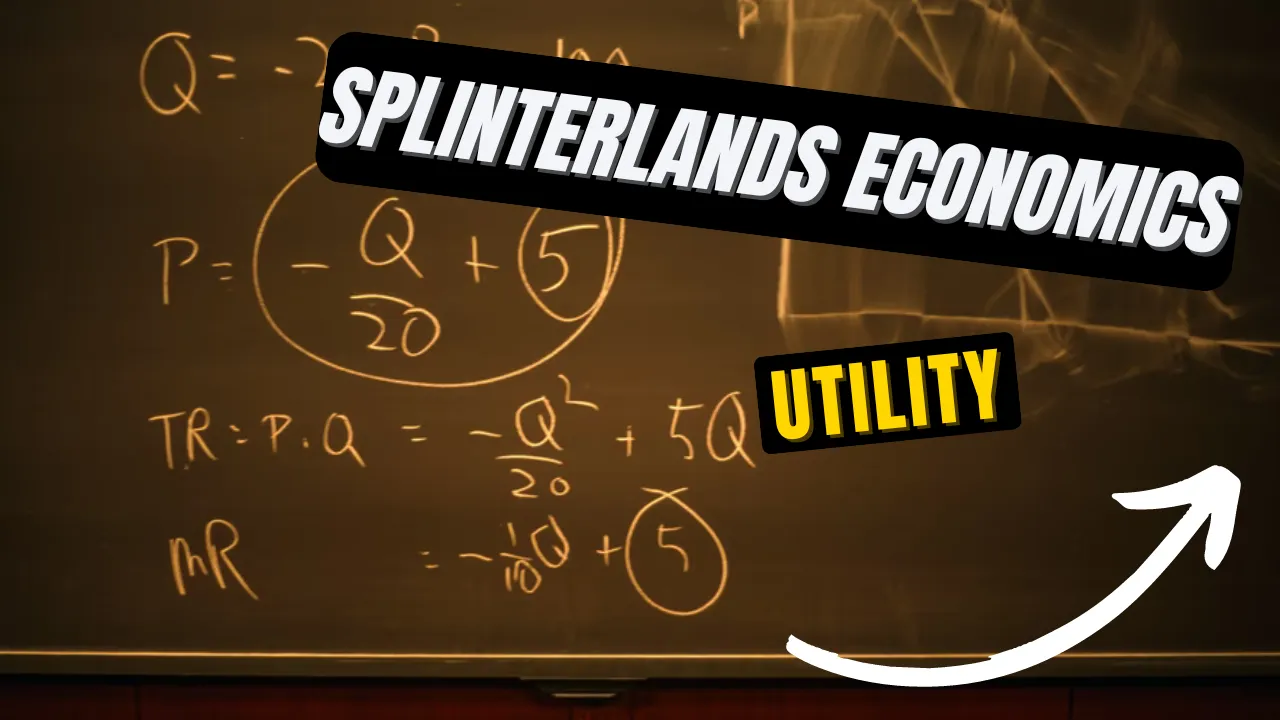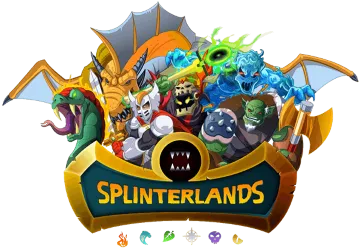Hello everyone! We are back again today with another edition of Splinterland Economics - a series in which we introduce a basic economic concept and then apply it to Splinterlands. If this is your first time reading, just to tell you a little bit about myself: my day job is in an unrelated area but I consider myself a little bit of economics nerd - I read a little (or maybe way, way) more news than I should, double majored in econ, and am obsessed with optimization. I love the way Splinterlands is equal parts card game and resource allocation game. My goal with these articles is to share a little bit of what I know with you all.
For our subject today we are going to go back and take a look at some of the basics. This week's topic is an important property describing the interaction of goods and consumers, and is of particular interest when it comes to evaluating markets and prices. Today, we'll be talking about Utility!

What is utility?
Utility is the amount of worth or usefulness that someone receives from obtaining or consuming a good. While thinking about different items for sale, if you really "like" or "want" specific things, then it is likely that those items provide significant amounts of utility to you. For example, my utility from a cookie is the amount of enjoyment I gain while eating it and the energy or (most likely negligible, in this case) nutritional value as my body digests it. Utility is specific to an individual, though when we begin to be talking about markets or commodities, "utility" is commonly used to refer to an aggregate or average utility across all consumers.
Utility itself generally does not get assigned a specific number, but it determines preferences and we can therefore observe properties about an individual's utility by observing their preferences between different goods or items. For example, if someone would feel roughly the same (or be "indifferent") about receiving two different items, then we can say that those two items provide a similar amount of utility. If you see "utility functions", those are equations based on these types of observations which attempt to approximate the total amount of utility that someone receives from different scenarios. This has applications in determining market prices, since it would make sense that two items with similar utility should have similar prices. It also follows that goods with more utility will tend to have higher prices than goods with lesser utility.
How do we apply it to Splinterlands?
Splinterlands has a wide variety of tradable assets - a whole lot of different cards, licenses, and land for starters, and that isn't even to mention DEC and SPS. All of these have some sort of utility. Understanding which uses or usage cases give items utility helps us to gain a better understanding of why certain things are valuable, and by extension, how those item values can change over time or as we receive new information. Please note that the following examples are not exhaustive, and are just a few instances of assets and some of their utilities. The Splinterlands ecosystem is still in the relatively early stages of development and things can change quickly!
For cards that utility lies in usage during battles or tournaments, as well as the option to rent a card out or sell it in the future. Some examples of factors which may impact the utility of cards might be the state of the ranked battle meta as cards see more or less usage or the amount of rewards paid out across different game modes. Additional functionality such as the option to stake cards on towers in the tower defense game or the ability to put cards to work on land are also major factors which could affect the utility of cards in the future.
For licenses and land, utility comes from being able to earn a revenue stream or the promise of additional functionality in the future. If you have ever noticed that players are extremely interested in any word from the developers regarding the state of land development or updated roadmaps then this is why - land values are nearly entirely based on speculative or still-to-be-implemented elements, and many people have significant amounts of capital tied up in those plots, tracts, and regions!
Finally, currencies such as DEC or SPS have utility in their usefulness in being able to conduct transactions in the card market, upgrade guild buildings, or participate in governance voting. Despite being a currency, they can also gain additional utility such as when new items become purchasable or when they become more usable via functions such as staking or liquidity pools. SPS is a particularly interesting case since it has a little bit of everything - it can be staked for voting on proposals or used in LPs, it is spendable to purchase packs in the shop, and the developers have also promised future use cases for it such as player staking and airdrops in other upcoming games.
Why should we care?
Particularly in fast-moving markets, understanding utility can allow us to more easily keep up with determining how events may impact market prices. As I mentioned earlier in this post, utility is specific to a particular person. It is important to recognize that something that is not terribly useful to us may be extremely valuable to someone else.
Being able to identify the utility of items, both to ourselves and to other people, can help us to more accurately assign valuations to things as we make decisions about what to buy or sell. Ultimately, being aware of your own utility for goods is a key step in more optimally allocating our resources towards the things that will make us the happiest, because that is really the end goal when we are spending our own money.
Thank you so much for reading all the way to the end. Interested in seeing some more of my writing in the future? Be sure to give me a follow! In the meantime, if you'd like to see some of my recent posts:
Splinterlands Economics: Prisoner's Dilemma - An introduction to the Prisoner's Dilemma, and how we can apply it to Splinterlands.
A Noxious Affair - Using DRAGONS in Battle! - Last week's battle challenge, featuring the Dragon splinter!
Splinterlands Economics: Negotiations and BATNA - An introduction to the concepts of Negotiation and BATNA, and how we can apply it in Splinterlands.
Thinking about giving Splinterlands a try but haven't signed up yet? Feel free to use my referral link: https://splinterlands.com?ref=bteim, and be sure to reach out to me if you have any questions!
All images used in this article are open source and obtained from Pixabay or Unsplash. Thumbnails borrowed with permission from the Splinterlands team or made in Canva.




